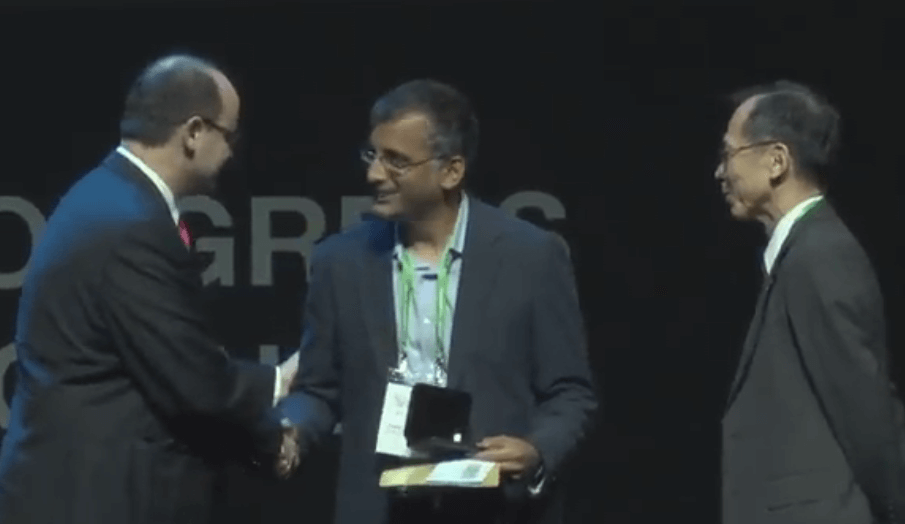A mathematician of Indian origin, who grew up in Australia, has been awarded the Fields Medal for his “profound contributions to an exceptionally broad range of subjects in mathematics.” Prof. Akshay Venkatesh is one of the four winners of the prize this year, which was presented at the International Congress of the International Mathematical Union in Rio de Janeiro on Aug.1.
The accolade, widely considered as the “Nobel for Mathematics,” has brought him “this sensation of transcendence,” Venkatesh said, adding that it feels like “you’ve been part of something really meaningful.”
ICM 2018 | "A lot of the time, when you do Math, you're stuck. But you feel privileged to work with it. You have a feeling of transcendence and feel like you've been part of something really meaningful." Akshay Venkatesh, 2018 Fields Medallist. #ICM2018 #ICM2018Rio
— ICM2018 (@ICM_2018) August 1, 2018
“A lot of the time when you do math, you’re stuck, but at the same time there are all these moments where you feel privileged that you get to work with it,” Venkatesh said after winning the award.
The other recipients of the award this year are Prof Caucher Birkar, 40, from Cambridge University, Prof Alessio Figalli, 34, from ETH in Zurich, and Prof Peter Scholze, 30, from Bonn University.
Venkatesh, who is known for his use of dynamics theory, was called a “prodigy” and “genius” at an early age, especially after he became the youngest person to study at the University of Western Australia at the age of 13 years. He achieved first-class honours in pure mathematics as a 16-year-old student, and went on to study at Princeton.
The mathematician, who was born in New Delhi, moved with his parents to Perth when he was two years old. He currently teaches at Stanford University but will soon be a part of permanent faculty at the Institute for Advanced Study in Princeton, where the preceding faculty included Albert Einstein, Kurt Gödel and several other winners of the Fields Medal, perhaps the most famous award in mathematics, which fetches each recipient a medal, and prize money of 15,000 Canadian dollars ($11,500).
The Fields Medal is named after Canadian mathematician John Charles Fields, who served as the secretary of the 1924 Mathematics Congress in Toronto. The first Fields Medals were awarded at the ICM in 1936 in Oslo, Norway. The award is given every four years to promising mathematicians under the age of 40 years.
Venkatesh won the award for “his synthesis of analytic number theory, homogeneous dynamics, topology, and representation theory, which has resolved long-standing problems in areas such as the equidistribution of arithmetic objects,” according to the International Mathematical Union.
“Akshay Venkatesh has made profound contributions to an exceptionally broad range of subjects in mathematics, including number theory, homogeneous dynamics, representation theory and arithmetic geometry. He solved many longstanding problems by combining methods from seemingly unrelated areas, presented novel viewpoints on classical problems, and produced strikingly far-reaching conjectures,” the award citation said.
Venkatesh has earlier received honors such as the Ostrowski Prize, the Infosys Prize, the Salem Prize and Sastra Ramanujan Prize.
